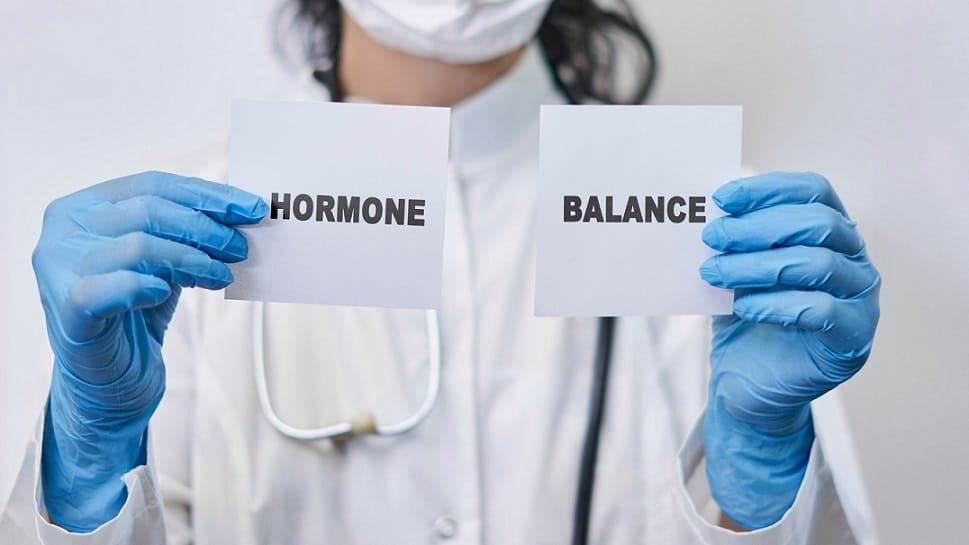Importance of Vitamin D: Benefits, Deficiency Risks, and How to Get Enough
Vitamin D is essential for overall health, but its importance for women is particularly noteworthy. Often called the “sunshine vitamin,” it plays a crucial role in bone health, immune system function, and hormone regulation. Despite its significance, many women are deficient in vitamin D, which can lead to a host of health issues. In this blog, we’ll explore why vitamin D is so important for women, the risks associated with vitamin D deficiency, and how to ensure you’re getting enough of this vital nutrient.
-
Why is Vitamin D Important for Women’s Health?
Vitamin D is critical for several physiological functions in women’s bodies. It is especially important for:
– Bone Health: Vitamin D helps the body absorb calcium, which is essential for maintaining strong bones and preventing conditions like osteoporosis. Women, particularly post-menopausal women, are at higher risk for bone density loss due to decreased estrogen levels. Sufficient vitamin D can help mitigate this risk and support bone health as women age.
– Immune Function: Vitamin D plays a pivotal role in supporting the immune system. Research has shown that vitamin D helps the body fight infections, reduce inflammation, and even decrease the risk of developing autoimmune diseases, which women are more prone to.
– Hormonal Balance: Vitamin D influences the regulation of insulin and estrogen, two hormones essential to women’s health. Proper vitamin D levels can help manage issues such as polycystic ovary syndrome (PCOS) and menstrual irregularities, while also supporting fertility.
– Mental Health: Vitamin D has been linked to mood regulation. Women with low vitamin D levels are more likely to suffer from mood disorders such as depression and anxiety, making adequate vitamin D intake crucial for emotional well-being.
-
Vitamin D Deficiency in Women: Risks and Symptoms
Despite the known benefits, vitamin D deficiency is surprisingly common, affecting millions of women worldwide. Certain factors put women at a higher risk of deficiency, including lack of sun exposure, darker skin tones, living in northern climates, and spending most of the day indoors. Older women, pregnant women, and those who are overweight are also more likely to be deficient in vitamin D.
Common Symptoms of Vitamin D Deficiency:
– Fatigue: A lack of vitamin D can lead to constant feelings of tiredness and low energy.
– Bone and Muscle Pain: Women with vitamin D deficiency may experience pain and weakness, particularly in their bones and muscles, as calcium absorption is compromised.
– Mood Changes: Low vitamin D levels have been associated with mood swings, anxiety, and depression.
– Frequent Illness: Since vitamin D is essential for immune health, women who are deficient may find themselves getting sick more often.
If left unaddressed, vitamin D deficiency can lead to severe health problems such as osteoporosis, increased risk of fractures, cardiovascular disease, and even some cancers.
-
How Much Vitamin D Do Women Need?
The recommended daily intake of vitamin D can vary based on age, lifestyle, and health conditions. For most women, the daily recommended amount is between 600 to 800 IU (International Units), but certain groups—such as older women, pregnant women, and those at higher risk of deficiency—may require more. It’s always best to consult with a healthcare provider to determine the appropriate amount for individual needs.
-
How to Get Enough Vitamin D: Sun, Food, and Supplements
Sunlight Exposure
One of the best sources of vitamin D is sunlight. When skin is exposed to UVB rays from the sun, it produces vitamin D naturally. However, factors like sunscreen use, living in northern regions, or spending a lot of time indoors can limit the body’s ability to produce vitamin D. Women who don’t get much sun exposure may need to rely more on food and supplements to meet their vitamin D needs.
Vitamin D-Rich Foods
Certain foods are naturally high in vitamin D or fortified with it. Including these in your diet can help boost vitamin D levels:
– Fatty Fish: Salmon, mackerel, and sardines are excellent sources of vitamin D.
– Egg Yolks: Eggs contain small amounts of vitamin D, primarily in the yolk.
– Fortified Foods: Many dairy products, plant-based milks, and cereals are fortified with vitamin D.
– Mushrooms: Some mushrooms, especially those exposed to UV light, are a good plant-based source of vitamin D.
Vitamin D Supplements
For women who struggle to get enough vitamin D from sunlight or food, supplements can be a highly effective way to maintain healthy levels. Vitamin D3 (cholecalciferol) is generally considered the most effective form for supplementation. Supplements are especially important for women who live in areas with limited sunlight, have darker skin, or have specific health conditions that make vitamin D absorption more difficult.
-
The Link Between Vitamin D and Disease Prevention
Research continues to uncover the broader role that vitamin D plays in preventing chronic diseases. For women, adequate vitamin D levels are linked to a reduced risk of several major health concerns:
– Osteoporosis and Fractures: Vitamin D, in combination with calcium, helps maintain bone strength and can prevent fractures and osteoporosis in older women.
– Heart Disease: Low vitamin D levels are associated with an increased risk of cardiovascular diseases, particularly in women.
– Breast Cancer: Some studies suggest that vitamin D may help reduce the risk of developing breast cancer, although more research is needed.
– Type 2 Diabetes: Vitamin D helps regulate insulin and may lower the risk of developing type 2 diabetes, a condition more common in women with PCOS or obesity.
Conclusion: The Importance of Vitamin D for Women’s Health
Vitamin D is vital for maintaining various aspects of women’s health, from bone strength to immune function and mental well-being. Given the widespread prevalence of vitamin D deficiency among women, it’s important to prioritize getting enough of this essential nutrient through sunlight, diet, or supplements. Women at risk of deficiency should work with their healthcare providers to monitor their vitamin D levels and ensure they are getting adequate amounts for long-term health and wellness.
Learn the importance of Vitamin D for women’s health, its benefits, deficiency risks, and how to maintain optimal levels for overall well-being.




